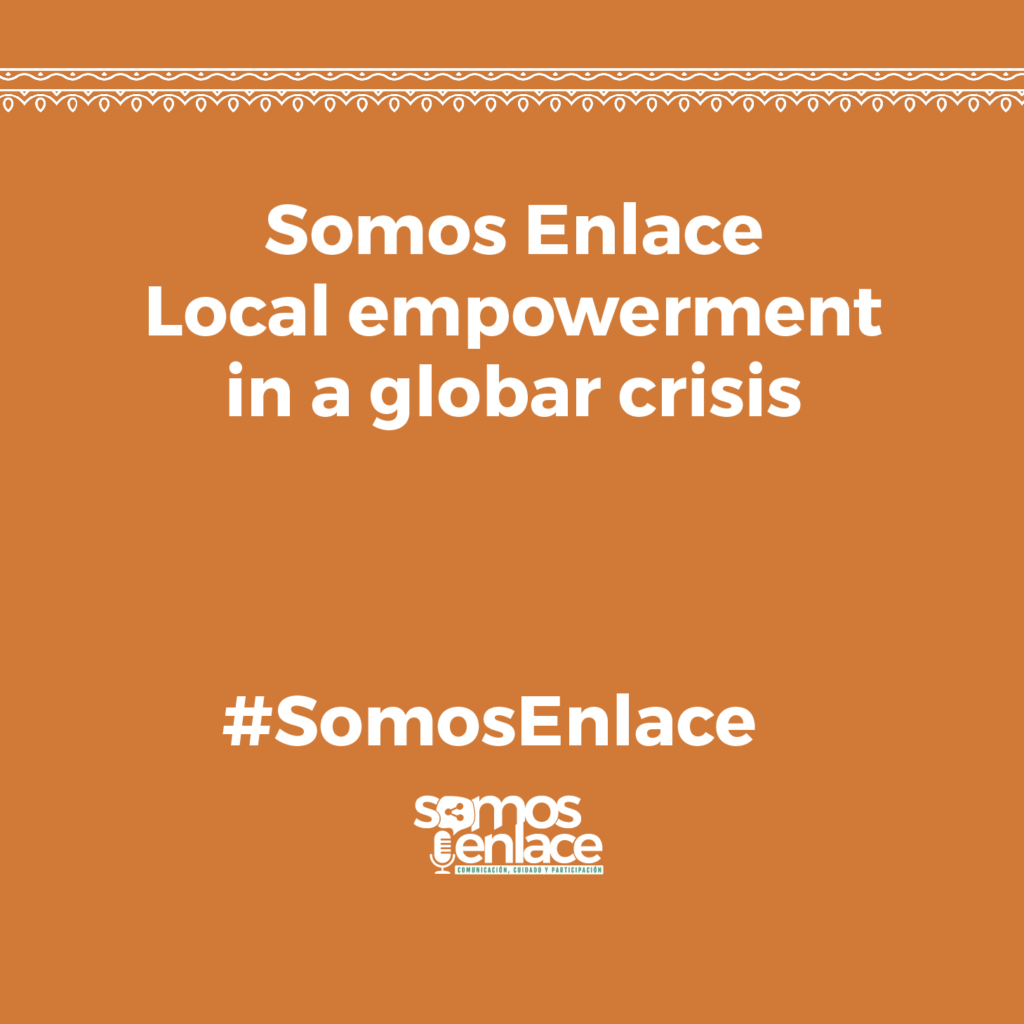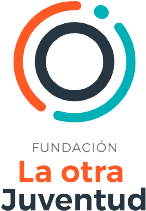SOMOS ENLACE – LOCAL EMPOWERMENT IN A GLOBAL CRISIS

Written by: Lucy Forster, intern at La Otra Juventud
SomosEnlace, which directly translates to ‘WeAreLink’ is a new initiative launched by La Otra Juventud, a Bogotá-based civil society organisation that works with digital media communications to strengthen democracy and youth empowerment in the capital and beyond. The newly launched project is the latest of the organisation’s initiatives, and comes as an urgent response to the outbreak of the Covid-19 pandemic. Supported by UNICEF
Colombia, the project aims to create a network of information exchange among communitymedia outlets and civil society organisations in 8 different regions in Colombia.
“The idea is to connect community media outlets and civil society organisations in different parts of the country” says Laura Bautista, communications manager at La Otra Juventud. The Colombian government imposed a total nation-wide lockdown on March 24 th , and has since maintained a policy of obligatory isolation. Dominant news stories focus on numbers of confirmed cases, and predictions of major government decisions. The issue, Laura contends, is that much of the information circulating right now is dominated by powerful media companies in Bogotá. These actors often lack the knowledge needed for a local response, and in turn miss distinctive issues that different communities may be facing. More than anything, SomosEnlace counters the effects of the COVID-19 ‘infodemic’ by promoting access to concise, factual and readily available information. The aim of the project is twofold; firstly to strengthen the links between local media actors and professional institutions, and secondly to strengthen the channels of communication between different communities around the country. Laura explains, “what we want is to consolidate a network and to create links between different territories where we are the actual ‘link’ (hence the name of the project) that connects communities to one another and to the resources they need.”
SomosEnlace focuses on three key themes: preventing the spread of COVID-19; promoting spaces of learning for children; and strengthening familiar links to combat the risk of domestic violence. Put together, these three themes create a holistic approach to managing the effects of the pandemic. UNICEF stresses that the consequences of the spread of the virus cannot be considered only in terms of physical health, because most people around the world are facing some form of government imposed crisis management that forces them to stay in their homes. These restrictions have effects on mental health levels, on access to education, and on access to protective services. And because of this, the project’s communication strategy must go beyond issues of the impact of COVID-19 on physical health. “We are not the experts in any of these three key themes”, Laura asserts. But La
Otra Juventud is an experienced actor in areas of digital communications and media production and can therefore use its expertise to empower others. The initial stages of SomosEnlace consist of offering workshops together with experts on the three key themes, followed by supporting the production of media content and developing a communications network. This design could help fill gaps that many government-led strategies fail to address.
There are two important advantages to collaborative relationships between international NGOs like UNICEF and civil society organisations like La Otra Juventud. The first is that local organisations contribute with accurate knowledge about the issues and areas they work with, which in turn improves the impact of any project. The second is that by empowering local actors, these collaborative partnerships help deconstruct hierarchies of structural power relations. In the case of SomosEnlace, supporting regional and local media organisations counters the unequal distribution of power in a country where media and information is highly centralised around the capital.
The project embodies the close relationship between media communications and public health. UNICEF recognises that access to information is a powerful tool in combatting the spread of the virus, but delivering accurate information also demands diversified sources of knowledge with local expertise. The ability to spread accurate information is a vital resource in any emergency. In this case, it is particularly important for relevant information to reach as many people as possible, as the rate of the spread of COVID-19 often comes down to individual behaviour.
While currently providing an immediate response to the ongoing isolation policies in Colombia, Laura expresses that there are other long-term goals to establishing a network like SomosEnlace. “Hopefully, we’ll be able to use this network to promote future national campaigns, where we will be working exclusively with community media outlets and other civil society organisations.” In the meantime, together with the support from UNICEF
Colombia, La Otra Juventud is making creative use of it skillset, launching SomosEnlace to foster an innovative response to a global crisis.
